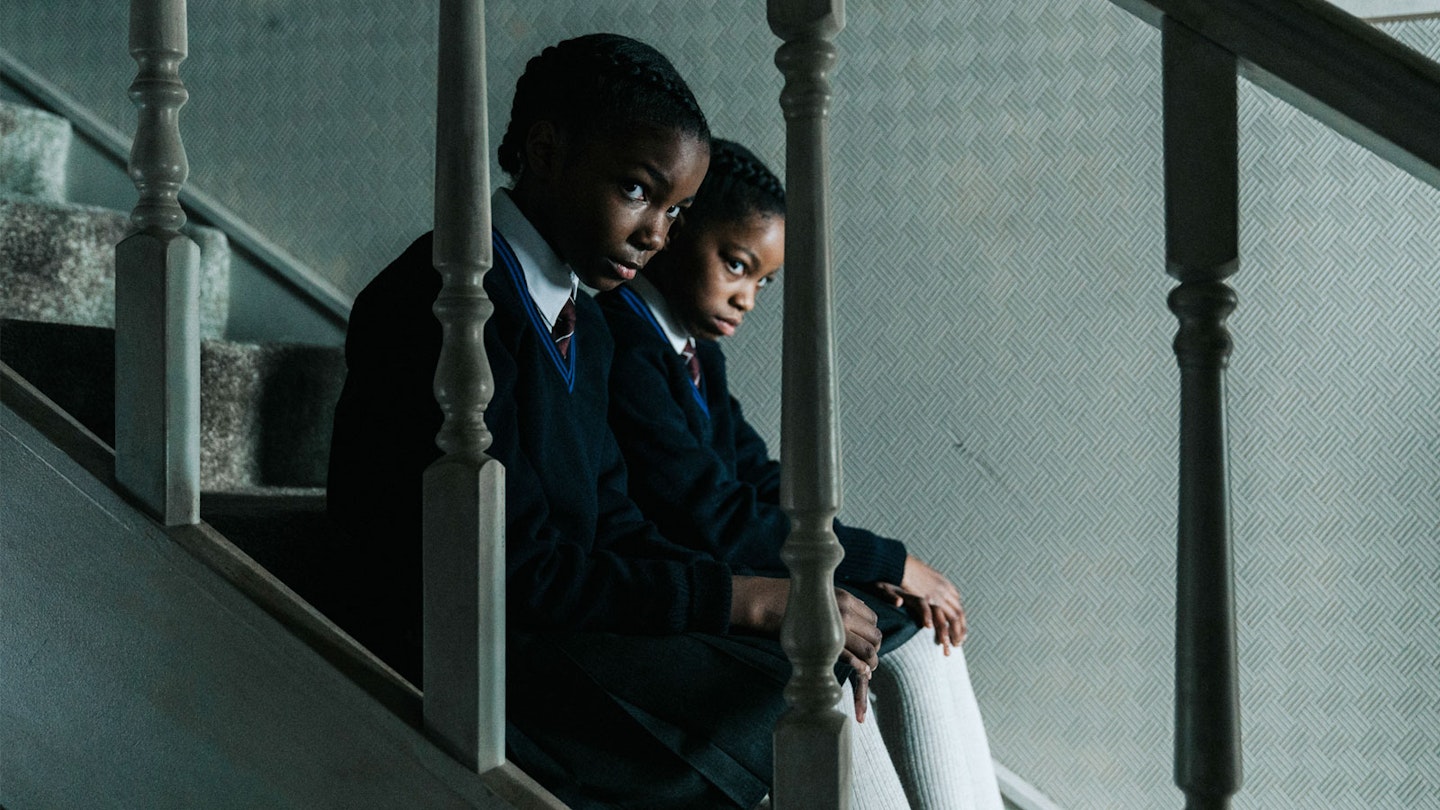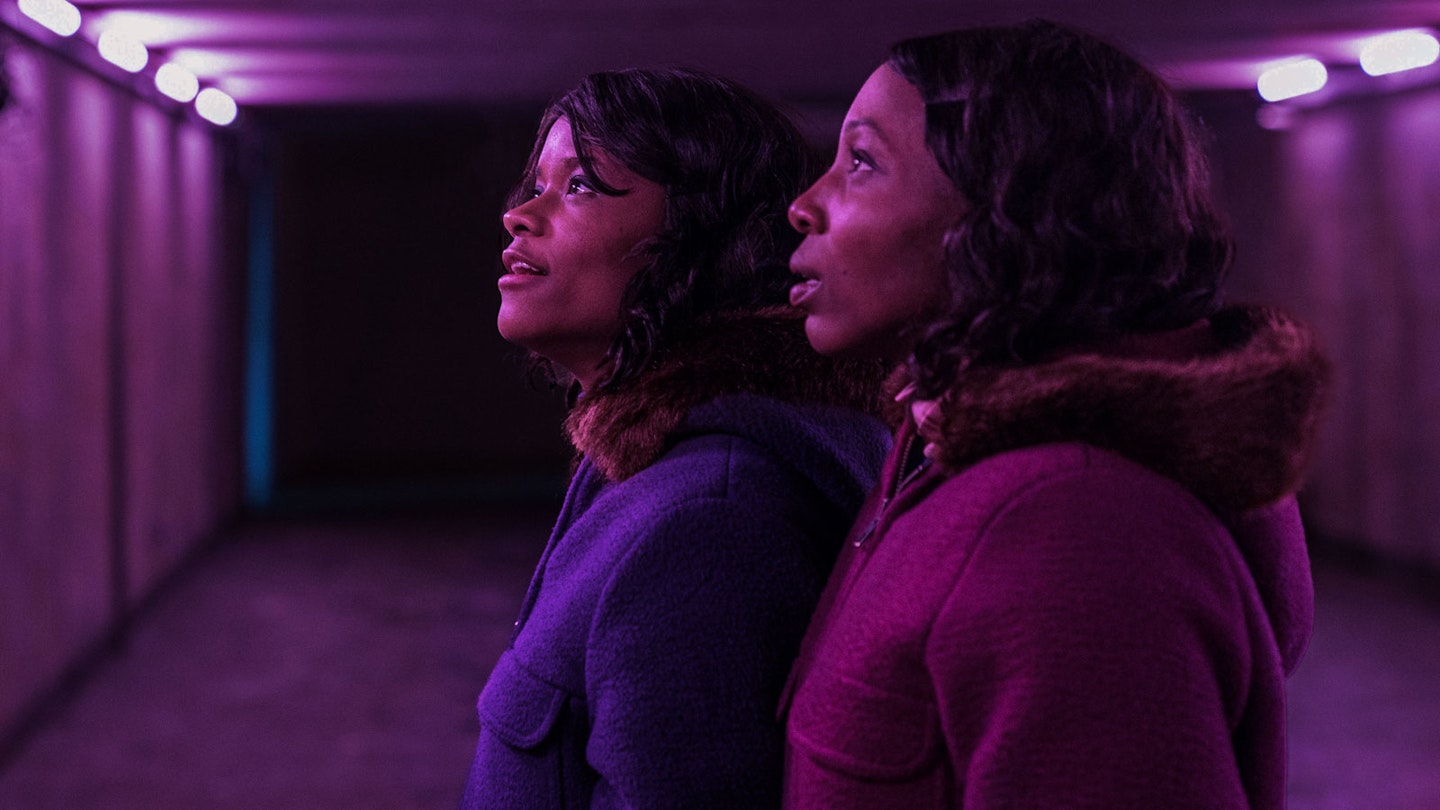The first few minutes of The Silent Twins are wonderfully striking. Opening in the mutual imaginary world of June and Jennifer Gibbons as children — played with youthful exuberance by Leah Mondesir-Simmonds and Eva-Arianna Baxter — they break the fourth wall to narrate the credits, before hosting a made-up radio show with freedom, joy, and wit.

Then, the film cuts to reality; their worlds are drained of colour, their vocals strained. It’s an effective gambit that’s used multiple times in Agnieszka Smoczynska’s English-language debut, about the real-life twins who chose to speak only with each other. It makes the viewer curious as to what led to there being such a stark difference between their real and imagined worlds. Yet for all its vibrant visuals and impressive performances, this biographical drama is hamstrung by the fact that it never details that context.
But, those visuals! The imaginary worlds are vividly brought to life with beautiful stop-motion animation sequences, all inspired by the sisters’ own writings. They’re filled with light and rosy colours, and cinematographer Jakub Kijowski’s danker palette for the real world only emphasises the harsh, chilling view most outsiders have of June and Jennifer as the narrative continues.
Still, the fact that the sisters receded from the outside world and only spoke with each other as a result of being severely bullied among the few Black kids in 1960s Wales is a detail that Andrea Siegel’s screenplay (adapted from Marjorie Wallace’s 1986 book of the same name) should have explicitly addressed more often, given that it played a critical role in who they became.
Nonetheless, committed, physical performances from Letitia Wright and Tamara Lawrence earn our pathos. Whether it’s sisterly arguments or choreographed dancing, they’re always in sync, even when their characters aren’t.
